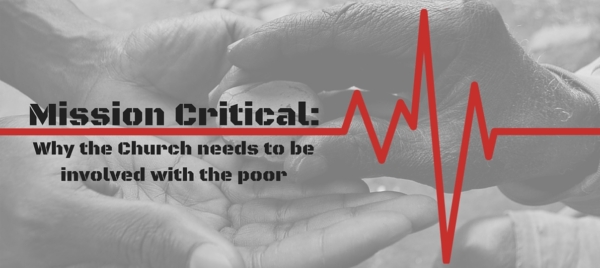Entry four of a six-part series
When I think of the word servant I think of a cupbearer, someone kneeling at the side of the king ready to meet his every thirsting need. Or a farmhand, shoveling manure or cleaning off the dirty plow. The word servant is often associated with menial tasks; cleaning, cooking, washing etc. – things that most people would not prefer to do. Consider this: In the Smith’s Bible dictionary [1] the word servant is used in the following ways:
1) To refer to someone as the equivalent as a slave. (Gen. 9:25)
2) An attendant in the service of someone. (Num. 11:28)
3) As a term of respectful self-depreciation referring to one’s self, “thy servant.” (1 Sam. 3:9)
4) One who is enslaved by sin. (John 8:34)
However, it is the final definition of usage that sticks out as unique.
5) One who is distinguished as obedient and faithful to God or Christ. (Dan. 6:20)
While often times the term is associated with “less than” positions of work and labor the reality in Jesus is that servanthood is actually redefined as the greatest leadership position of all. True leadership is servanthood, and the greatest leader of all time is Jesus Christ. Being a servant is an attitude exemplified by Christ “who, though he was in the form of God, did not count equality with God a thing to be grasped, but emptied himself, taking the form of a servant” (Phil 2:6-7)
However, the challenge in all of this is that servanthood does not come naturally. Our modern day society, and this includes a great number of Christ followers, is focused on making satisfaction its goal, indeed, its religion. (See our recent blog entry on the “me first” mentality) There is much more concern for self-fulfillment than for pleasing God and truly serving Him and others as seen in the life of Jesus. With this has come a preoccupation with comfort, materialism and self-preservation. And together these qualities have caused the church to become more and more disconnected with the vulnerable and broken in our society. The church has left homelessness and addiction; pregnancy care and issues of injustice up to the government and not tackled them head on. They have become preoccupied and concerned more with the issues inside their walls rather than the cries at the door from the outside. We have become afterthoughts in community transformation and development and are missing a great opportunity to share Christ through acts of service and love.
However the point I think is most important not to miss is that loving and serving the vulnerable and poor is not just for their sake but for ours too.
Mission Critical: serving others serves Christ.
When we become involved in the lives of the poor and vulnerable we will inevitably receive numerous opportunities to serve them, which in turn allows us the privilege to serve Christ.
About a month ago I received a phone call from my refugee friend. I couldn’t understand exactly what he needed but I did understand that he needed use of my van to haul something. Now I was about 30 minutes from walking out the door for an event when I received this call. I wasn’t sure what to do… To make a long story short my friend had purchased a small couch and needed a way to get it from the warehouse on the northeast side of town, to his apartment on the east side of town. I didn’t really have time to be a moving service but I volunteered to do it anyways. I picked up the couch and delivered it to my friend’s apartment. When I left I gave him a hug and told him God loved him. There isn’t much more to the story… yet. I say yet because I am praying that each little act of kindness will re-enforce time again that God’s love of him is deep and wide.
The experience didn’t change me in some radical way, but it did remind me that my agenda sometimes needs to take the back seat in order to serve others needs. I would never have had the chance to serve him last month and show the love of Christ to him if I wouldn’t have taken the time to step into his immigration issues over a year ago.
Mark 10:45 says: “the Son of Man did not come to be served, but to serve, and to give His life a ransom for many”
When we give Jesus Christ His rightful place as Lord of our lives, His lordship will be expressed in the way we serve others. (Mark 9:35) How can we demonstrate love for God? Our love for God will be expressed in our love for others. “For what we preach is not ourselves, but Jesus Christ as Lord, with ourselves as your servants for Jesus’ sake” (2 Cor. 4:5) [2] In serving the poor we are given an incredible privilege – a chance to love Jesus through loving people in their time of need.
Why is serving the needy critical to the church? Because serving others is what Jesus is up to. Christians have been called to be his participants in building the kingdom of God (Matt. 6:33) and grasping the power of servanthood is a beautiful place to start.



Leave A Comment